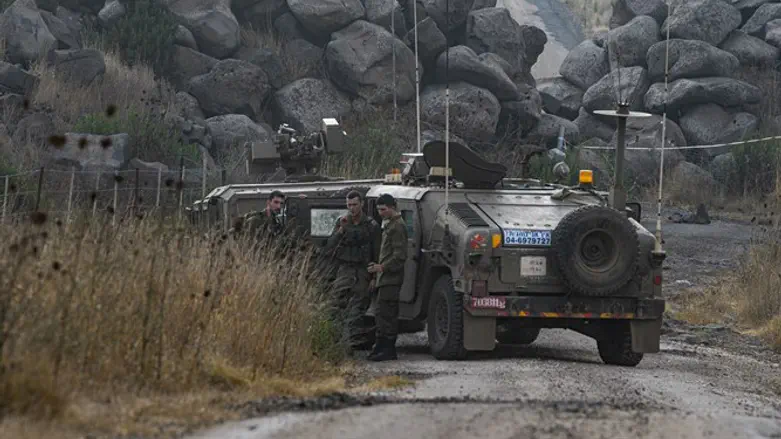
In contrast with previous practice, the IDF has chosen to take responsibility for the attacks that took place on Tuesday night and early Wednesday morning on an army base and a headquarters of the Iranian Quds Force in Syria.
Arutz Sheva discussed this apparent change in policy with former general MK Uzi Dayan, a member of the Knesset’s Foreign Affairs and Defense committee.
“It’s not actually a policy change,” Dayan says. “The reason why we don’t usually accept responsibility, preferring to say nothing, is so that we don’t have to respond to every little incident, either denying or confirming. However, there have definitely been occasions in the past where we did accept responsibility, if certain revelations made our involvement obvious, for example – or, as was the case today, when we actively desired to create the impression of acting with determination in order to achieve a certain result.”
Regarding the Israeli statement that was published, Dayan says, “We have to distinguish between steps taken to minimize Iranian encroachments into Syria, which is something we do often, and incidents like this. This was a cross-border attack that constituted a direct threat to IDF soldiers in the border region. It could have ended with many deaths, which is why we issued such a severe response, intended to send a sharp message to the Syrians and their Iranian friends.”
Dayan adds that, “We also had another aspect in mind with our response, which was that it could potentially lead into something much more significant.” Pressed to elaborate, Dayan explains, “The way I see it, we need to stabilize the situation in southern Syria, and we now have an excellent opportunity to do so. This stems from the fact that the Iranians are putting a great deal of pressure on the Syrian Druze living on the other side of the border, and trying ot push them into taking all sorts of actions. It’s hard for them to refuse, given their current difficult economic situation – but on the other hand, my assessment is that they are just about ripe for rebellion. They can muster tens of thousands of fighters, and they’re going to want help if they do rebel against Iran, and of course we’re not interested in starting a war there, but we are very interested in seeing a situation in which those on the other side of our border are well-disposed toward us.”
Dayan relates that, “The Druze in Jabal Druze and in the villages along the Hermon mountain range could make a real difference to the overall picture. If they receive support from the Sunni Muslims in the Arab Gulf States, the situation in southern Syria could change very favorably for us, and my estimate is that neither the United States nor Russia would object to that happening.”
Is Israel’s long-term goal to create “two Syrias” in that case?
“There are effectively already several Syrias today,” Dayan responds. “Just as in various other countries, Syria is divided into various ‘tribes.’ There is basically nothing to link the Christians there with the Allawites or the Sunnis with the Shiites or the residents of the north with those in the south. But we have consistently avoided getting involved in the internal affairs of the Syrian government. For years, I’ve been arguing that in Syria, there are no good guys or bad guys, and therefore we can’t take sides. All the various parties are bad in some sense, but right now, it’s somewhat different because Iran is making more and more inroads into the southern part of the country, and that’s the last thing we want to be happening on our border.
“The Druze are already fed up with all the pressure from the Syrians,” he notes, “and that’s why I see an opportunity to create a situation that could develop into a form of autonomy there, but meanwhile, it is already a quasi-autonomy in the southern border area. The main thing, for the time being, is that whoever’s there shouldn’t be hostile to Israel. They shouldn’t be digging tunnels from there into Israel, or shooting mortars and Katyusha rockets at us. This is what’s most important to us right now.”
If the Druze, or another party, gain the ascendance in the Syrian Golan, and Israel perceives them as friendly, doesn’t that risk putting us in a situation where we become complacent, and rely on foreign entities to guarantee our security – as was the case in southern Lebanon, which ended up exploding in our faces?
Dayan stresses: “Absolutely not. I believe in trusting in G-d and in our reserve forces. We do need to help the Druze in some way, given that they are in a very difficult position, but we are not about to downgrade our defenses and security apparatus in the Golan region. We can involve ourselves to a certain degree in the hope that we will ultimately succeed in bringing about a situation where those on the other side of the border are not our enemies, but whether that happens or not, we’re not about to rely on the Syrian Druze or anyone else to protect us. All the same, if southern Syria becomes a region that is friendly to Israel, that will definitely be good news.”